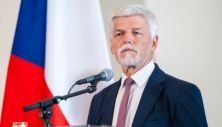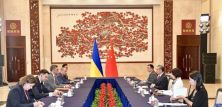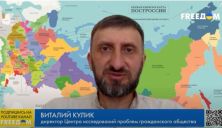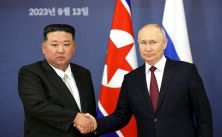Oleksandr Kubrakov, Deputy Prime Minister for Reconstruction of Ukraine and Minister for Communities, Territories and Infrastructure Development, held talks with Ramiro Lopes da Silva, Deputy Executive Director of the World Food Programme, and Matthew Hollingworth, WFP Representative and Country Director for Ukraine.
The meeting concerned the development of Ukraine’s agricultural sector, plans to support small agricultural producers and projects to demine areas for growing grain crops.
“Ukraine feels its global responsibility as one of the guarantors of food security in the world. That is why we are currently actively working with international partners to support the development of Ukrainian logistics. The civilised world should not allow russia to hold millions of people in Africa and Asia hostage to hunger.
The parties also discussed the task of demining a large part of agricultural land and investments in the industry. Restoration of Ukraine’s agricultural potential is a prerequisite for stabilising the humanitarian situation in the world,” commented Oleksandr Kubrakov.
The parties also considered the implementation and prospects for the continuation of the Grain Initiative, the development of alternative logistics routes for agricultural exports under the EU’s Solidarity Lanes initiative, opportunities for global businesses to invest in the development of the Danube Port Cluster and support for Ukrainian farmers.
Since 1 August 2022, 24.4 million tonnes of Ukrainian food have been exported from the ports of Greater Odesa to Asia, Europe and Africa, including almost half a million tonnes of food exported to the poorest countries in the world in partnership with WFP.
Background
The export figures could have been significantly higher if not for russia’s delays in inspections in the Bosphorus. In particular, in February, only 149 inspections were carried out against the planned 296 due to russia’s obstruction to the work of the Joint Coordination Centre in Istanbul. This situation leads to congestion in the Bosphorus Strait, which consistently reaches 120-140 vessels.












